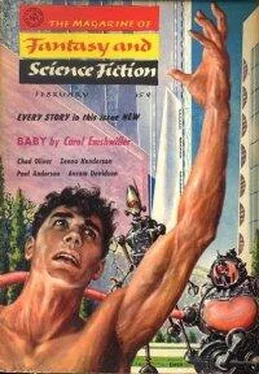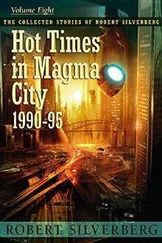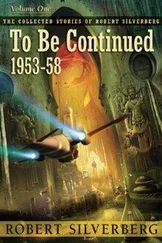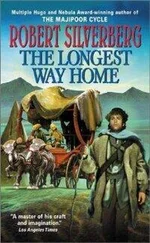Robert Silverberg - The Man Who Never Forgot
Здесь есть возможность читать онлайн «Robert Silverberg - The Man Who Never Forgot» весь текст электронной книги совершенно бесплатно (целиком полную версию без сокращений). В некоторых случаях можно слушать аудио, скачать через торрент в формате fb2 и присутствует краткое содержание. Год выпуска: 1958, Издательство: Fantasy House, Inc., Жанр: Фантастика и фэнтези, на английском языке. Описание произведения, (предисловие) а так же отзывы посетителей доступны на портале библиотеки ЛибКат.
- Название:The Man Who Never Forgot
- Автор:
- Издательство:Fantasy House, Inc.
- Жанр:
- Год:1958
- ISBN:нет данных
- Рейтинг книги:3 / 5. Голосов: 1
-
Избранное:Добавить в избранное
- Отзывы:
-
Ваша оценка:
- 60
- 1
- 2
- 3
- 4
- 5
The Man Who Never Forgot: краткое содержание, описание и аннотация
Предлагаем к чтению аннотацию, описание, краткое содержание или предисловие (зависит от того, что написал сам автор книги «The Man Who Never Forgot»). Если вы не нашли необходимую информацию о книге — напишите в комментариях, мы постараемся отыскать её.
The Man Who Never Forgot — читать онлайн бесплатно полную книгу (весь текст) целиком
Ниже представлен текст книги, разбитый по страницам. Система сохранения места последней прочитанной страницы, позволяет с удобством читать онлайн бесплатно книгу «The Man Who Never Forgot», без необходимости каждый раз заново искать на чём Вы остановились. Поставьте закладку, и сможете в любой момент перейти на страницу, на которой закончили чтение.
Интервал:
Закладка:
The Man Who Never Forgot
by Robert Silverberg
He saw the girl waiting in line outside a big Los Angeles movie house, on a mildly foggy Tuesday morning. She was slim and pale, barely five-three, with stringy flaxen hair, and she was alone. He remembered her, of course.
He knew it would be a mistake, but he crossed the street anyway and walked up along the theater line to where she stood.
“Hello,” he said.
She turned, stared at him blankly and flicked the tip of her tongue out for an instant over her lips. “I don’t believe I—”
“Tom Niles,” he said. “Pasadena, New Year’s Day, 1955. You sat next to me. Ohio State 20, Southern Cal 7. You don’t remember?”
“A football game? But I hardly ever—I mean—I’m sorry, mister. I—”
Someone else in the line moved forward toward him with a tight hard scowl on his face. Niles knew when he was beaten. He smiled apologetically and said, “I’m sorry, miss. I guess I made a mistake. I took you for someone I knew—a Miss Bette Torrance. Excuse me.”
And he strode rapidly away. He had not gone more than ten feet when he heard the little surprised gasp and the “But I am Bette Torrance!”—but he kept going.
I should know better after twenty-eight years, he thought bitterly. But I forget the most basic fact—that even though I remember people, they don’t necessarily remember me—
He walked wearily to the corner, turned right, and started down a new street, one whose shops were totally unfamiliar to him and which, therefore, he had never seen before. His mind, stimulated to its normal pitch of activity by the incident outside the theater, spewed up a host of tangential memories like the good machine it was:
Jan. 1, 1955. Rose Bowl Pasadena California Seat G126; warm day, high humidity, arrived in stadium 12:03 P.M., PST. Came alone. Girl in next seat wearing blue cotton dress, white oxfords, carrying Southern Cal pennant. Talked to her. Name Bette Torrance, senior at Southern Cal, government major. Had a date for the game but he came down with flu symptoms night before, insisted she see game anyway. Seat on other side of her empty. Bought her a hot dog, 20¢ (no mustard)—
There was more, much more. Niles forced it back down. There was the virtually stenographic report of their conversation all that day:
(“… I hope we win. I saw the last Bowl game we won, two years ago …”
“… Yes, that was 1953. Southern Cal 7, Wisconsin 0… and two straight wins in 1944–45 over Washington and Tennessee …”
“… Gosh, you know a lot about football! What did you do, memorize the record book?”)
And the old memories. The jeering yell of freckled Joe Merritt that warm April day in 1937— who are you, Einstein? And Buddy Call saying acidly on November 8, 1939, Here comes Tommy Niles, the human adding machine. Get him! And then the bright stinging pain of a snowball landing just below his left clavicle, the pain that he could summon up as easily as any of the other pain-memories he carried with him. He winced and closed his eyes suddenly, as if struck by the icy pellet here on a Los Angeles street on a foggy Tuesday morning.
They didn’t call him the human adding machine any more. Now it was the human tape recorder; the derisive terms had to keep pace with the passing decades. Only Niles himself remained unchanging, The Boy With The Brain Like A Sponge grown up into The Man With The Brain Like A Sponge, still cursed with the same terrible gift.
His data-cluttered mind ached. He saw a diminutive yellow sports car parked on the far side of the street, recognized it by its make and model and color and license number as the car belonging to Leslie F. Marshall, twenty-six, blond hair, blue eyes, television actor with the following credits-Wincing, Niles applied the cutoff circuit and blotted out the upwelling data. He had met Marshall once, six months ago, at a party given by a mutual friend—an erstwhile mutual friend; Niles found it difficult to keep friends for long. He had spoken with the actor for perhaps ten minutes and had added that much more baggage to his mind.
It was time to move on, Niles decided. He had been in Los Angeles ten months. The burden of accumulated memories was getting too heavy; he was greeting too many people who had long since forgotten him ( curse my John Q. Average build, 5 feet 9, 163 pounds, brownish hair, brownish eyes, no unduly prominent physical features, no distinguishing scars except those inside, he thought). He contemplated returning to San Francisco, and decided against it. He had been there only a year ago; Pasadena, two years ago. The time had come, he realized, for another eastward jaunt.
Back and forth across the face of America goes Thomas Richard Niles, Der fliegende Holländer, the Wandering Jew, the Ghost of Christmas Past, the Human Tape Recorder. He smiled at a newsboy who had sold him a copy of the Examiner on May 13 past, got the usual blank stare in return, and headed for the nearest bus terminal.
For Niles the long journey had begun on October 11, 1929, in the small Ohio town of Lowry Bridge. He was third of three children, born of seemingly normal parents, Henry Niles (b. 1896), Mary Niles (b. 1899). His older brother and sister had shown no extraordinary manifestations. Tom had.
It began as soon as he was old enough to form words; a neighbor woman on the front porch peered into the house where he was playing, and remarked to his mother, “Look how big he’s getting, Mary!”
He was less than a year old. He had replied, in virtually the same tone of voice, “ Look how big he’s getting, Mary! ” It caused a sensation, even though it was only mimicry, not even speech.
He spent his first twelve years in Lowry Bridge, Ohio. In later years, he often wondered how he had been able to last there so long.
He began school at the age of four, because there was no keeping him back; his classmates were five and six, vastly superior to him in physical coordination, vastly inferior in everything else. He could read. He could even write, after a fashion, though his babyish muscles tired easily from holding a pen. And he could remember.
He remembered everything. He remembered his parents’ quarrels and repeated the exact words of them to anyone who cared to listen, until his father whipped him and threatened to kill him if he ever did that again. He remembered that too. He remembered the lies his brother and sister told, and took great pains to set the record straight. He learned eventually not to do that, either. He remembered things people had said, and corrected them when they later deviated from their earlier statements.
He remembered everything.
He read a textbook once and it stayed with him. When the teacher asked a question based on the day’s assignment, Tommy Niles’ skinny arm was in the air long before the others had even really assimilated the question. After a while, his teacher made it clear to him that he could not answer every question, whether he had the answer first or not; there were twenty other pupils in the class. The other pupils in the class made that abundantly clear to him, after school.
He won the verse-learning contest in Sunday school. Barry Harmon had studied for weeks in hopes of winning the catcher’s mitt his father had promised him if he finished first—but when it was Tommy Niles’ turn to recite, he began with In the beginning God created the heaven and the earth, continued through Thus the heavens and the earth were finished, and all the host of them, headed on into Now; the serpent was more subtil than any beast of the field which the Lord God had made, and presumably would have continued clear through Genesis, Exodus, and on to Joshua if the dazed proctor hadn’t shut him up and declared him the winner. Barry Harman didn’t get his glove; Tommy Niles got a black eye instead.
Читать дальшеИнтервал:
Закладка:
Похожие книги на «The Man Who Never Forgot»
Представляем Вашему вниманию похожие книги на «The Man Who Never Forgot» списком для выбора. Мы отобрали схожую по названию и смыслу литературу в надежде предоставить читателям больше вариантов отыскать новые, интересные, ещё непрочитанные произведения.
Обсуждение, отзывы о книге «The Man Who Never Forgot» и просто собственные мнения читателей. Оставьте ваши комментарии, напишите, что Вы думаете о произведении, его смысле или главных героях. Укажите что конкретно понравилось, а что нет, и почему Вы так считаете.












